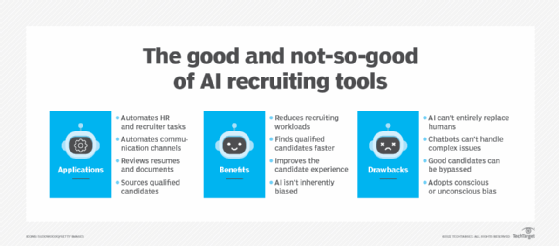Prepared or not, the metaverse is coming, bringing a eyesight of the long term wherein we spend a considerable a part of our life in digital and augmented worlds. Whereas it feels like science fiction to some, a present analysis by McKinsey positioned that quite a few consumers anticipate to commit excess of 4 hours a working day within the metaverse within the next 5 a long time.
Personally, I imagine it is a hazardous inflection challenge in human background. The metaverse may very well be a artistic medium that expands what it suggests to be human. Or it may grow to be a deeply oppressive applied sciences that gives companies (and level out actors) unparalleled management above fashionable society. I by no means make that assertion evenly. I’ve been a champion of digital and augmented worlds for round 30 a few years, beginning as a researcher at Stanford, NASA, and the US Air Pressure, after which founding a quantity of VR and AR firms. Acquiring lived via a number of hoopla-cycles, adopted by chilly winters, I think about we’re lastly on this article: The metaverse will quickly have a key affect on tradition. Sadly, the deficiency of regulatory protections has me deeply fearful.
Carving away the various tangential applied sciences that distract from the principle technique, we are able to boil the essence all the way down to a clear and easy definition:
“The metaverse” represents the extensive societal shift in how we interact digital materials, probably from flat media thought-about within the third man or lady to immersive actions engaged within the 1st particular person.
The metaverse may have two main flavors: digital and augmented, which can overlap however evolve at various charges, entail distinctive firm gamers, and sure undertake various firm fashions. The “digital metaverse” will evolve out of gaming and social media, bringing us purely digital worlds for enjoyment, socializing, procuring, and different minimal-length routines. The “augmented metaverse” will evolve out of the mobile phone sector and can embellish the true atmosphere with immersive digital overlays that convey inventive and informational content material materials into our day by day ordeals at property, carry out, and group areas.
Main hazard lies ahead
Whether or not digital or augmented, this alteration from flat media to immersive experiences will give metaverse platforms unprecedented electrical energy to watch, profile, and affect shoppers at quantities considerably past almost something we’ve got skilled to day. In easy truth, as I talked about with POLITICO this week, an unregulated metaverse may develop to be essentially the most perilous instrument of persuasion that humanity has ever developed.
Subscribe for counterintuitive, beautiful, and impactful tales despatched to your inbox each Thursday
That’s primarily as a result of metaverse platforms won’t simply maintain monitor of the place by patrons click on on, but in addition will monitor wherever folks go, what they do, who they’re with, and what they appear at. Platforms may also monitor posture and gait, assessing when folks decelerate to browse or velocity as much as cross locations they don’t seem to be intrigued in. Platforms will even know what items you seize off the cupboards to go looking at in retailers (digital or augmented), how lengthy you analysis the packaging, and even how your pupils dilate to point out ranges of engagement.
Within the augmented metaverse, the aptitude to trace gaze, gate, and posture raises distinctive worries for the reason that {hardware} shall be worn throughout day-to-day lifetime. While patrons stroll down genuine streets, platforms will know which retail retailer residence home windows they peer in, for the way very lengthy, even which components of the present attracts of their consciousness. Gait monitoring may also be employed to find health-related and psychological illnesses, from detecting melancholy to predicting dementia.
Metaverse platforms may also monitor facial expressions, vocal inflections, and essential indicators, when AI algorithms assess consumer feelings. Platform suppliers will use this to make avatars appear way more pure, with dependable facial reactions. Whereas these kind of features are worthwhile and humanizing, with no regulation the exact same details may very well be employed to construct emotional profiles that doc how folks immediately react to a assortment of predicaments and stimuli via their day-to-day lifetime.
Invasive checking is an noticeable privateness concern, however the hazards develop once we take into accounts that behavioral and psychological profiles can be utilized for targeted persuasion. That’s primarily as a result of promotion within the metaverse will transition from flat media to immersive actions. This can most definitely contain two distinctive varieties of metaverse advertising and marketing and promoting recognized as Digital Product Placements (VPPs) and Digital Spokespeople (VSPs) as follows:
Digital Merchandise Placements (VPPs) are simulated merchandise and options, professional providers, or issues to do injected into an immersive whole world (digital or augmented) on behalf of a paying out sponsor this sort of that they give the impression of being to the buyer as natural components of the ambient environment.
Digital Spokespeople (VSPs) are simulated of us or different characters injected into immersive environments (digital or augmented) that verbally convey advertising and marketing materials on behalf of a having to pay sponsor, usually taking part patrons in AI-moderated advertising and marketing dialogue.
To worth the affect of those selling strategies, take into consideration Digital Merchandise Placements presently being deployed in a digital or augmented metropolis. When going for walks a energetic avenue, a shopper who’s profiled as a casual athlete of a definite age may probably see somebody strolling earlier them ingesting a singular producer of athletics eat or sporting a definite producer of coaching outfits. As a result of it is a particular VPP, different folks immediately throughout them wouldn’t see the same articles. A teen could properly see folks donning trendy attire or consuming a specific fast meals stuff, whereas a youthful toddler may probably see an outsized movement decide waving at them as they transfer.

Whereas merchandise placements are passive, Digital Spokespeople may be energetic, partaking folks in promotional dialog on behalf of shelling out sponsors. Whereas this kind of capabilities appeared out of attain only a handful of years in the past, fashionable breakthroughs within the fields of Massive Language Kinds (LLMs) make these talents viable within the in shut proximity to phrase. The verbal commerce may very well be so dependable, prospects may not discover they’re speaking to an AI-driven conversational agent with a predefined persuasive agenda. This opens the door for a big array of predatory strategies that go additional than common promoting towards outright manipulation.
Monitoring and profiling of patrons will not be a brand new challenge — social media platforms and different tech options presently do it. Within the metaverse, then again, the size and intimacy of shopper checking will develop noticeably. Equally, predatory promoting and propaganda should not new troubles. However within the metaverse, shoppers may uncover it tough to differentiate involving genuine experiences and focused advertising and marketing materials injected on behalf of paying sponsors. This is able to empower metaverse platforms to effortlessly manipulate consumer experiences on behalf of getting to pay sponsors with out their understanding or consent.
The state of affairs for immersive authorized rights
The shift from commonplace promoting to promotionally altered experiences raises new issues for purchasers, incomes it essential for policymakers to ponder restrictions that assure primary immersive authorized rights. Whereas there are fairly a number of protections required, I suggest a handful of important sorts.
1. The acceptable to experiential authenticity
Selling is pervasive within the bodily and digital atmosphere, from merchandise web advertising and marketing to political messaging, however most grownups can conveniently decide promotional content material materials. This permits folks immediately to view ads in the appropriate context: as paid out messaging shipped by a celebration attempting to affect them. Buying this context allows prospects to convey wholesome skepticism and important questioning when pondering of products, suppliers, political ideas, and different messages they’re uncovered to.
Within the metaverse, advertisers may subvert our ability to contextualize promotional materials by blurring the boundaries in between genuine encounters which are serendipitously encountered and targeted promotional experiences injected on behalf of getting to pay sponsors. This might merely cross the road from selling to deception and are available to be a predatory apply.
Visualize strolling down the road in a sensible digital or augmented earth. You observe a parked auto you’ve in no way noticed simply earlier than. As you cross, you overhear the operator telling a pal how considerably they benefit from the auto. You preserve going for walks, subconsciously affected by what you believed was an real encounter. What you actually do not know is that the encounter was advertising and marketing, put there so that you’d see the auto and listen to the change. It was additionally focused — solely you noticed the change, which was chosen based totally in your profile and customized for optimum have an effect on, from the shade of the motorized vehicle to the gender, voice, and clothes of the Digital Spokespeople made use of.
Although this model of covert selling could probably appear to be benign, merely influencing ideas a couple of new motorized vehicle, the identical devices and methods may very well be utilized to promotionally change ordeals that generate political propaganda, misinformation, and outright lies. To protect prospects, immersive methods these sorts of as Digital Services or products Placements and Digital Spokespeople ought to actually be managed.
Within the minimal, legal guidelines ought to actually safeguard the essential appropriate to genuine actions. This may very well be reached by demanding that promotional artifacts and promoting of us be visually and audibly distinctive in an overt approach, enabling folks to grasp them within the acceptable context. This is able to defend patrons from mistaking promotionally altered actions as dependable encounters.
2. The acceptable to emotional privateness
We folks have developed the potential to specific ideas on our faces, voices, posture, and gestures. We now have additionally developed the power to undergo these traits in lots of others. It is a commonplace number of human communication that may work in parallel with verbal language. In fashionable years, sensing applied sciences blended with gadget mastering have enabled software program items to determine human feelings in genuine time from faces, voices, posture, and gesture, in addition to from important indicators these sorts of as respiration value, coronary heart degree, eye motions, pupil dilation, and blood pressure. Even facial blood circulate designs detected by cameras may be employed to interpret feelings.
Although quite a few watch this as enabling desktops to have interaction in nonverbal language with folks, it may merely cross over to intrusive and exploitative violations of privateness. There are two causes for this: sensitivity and profiling. In phrases of sensitivity, laptop computer items at the moment are capable of detect feelings from cues that aren’t perceptible to people. For working example, a human observer cannot rapidly detect coronary heart value, respiration quantity, and blood strain, which implies these indicators could be revealing emotions that the observed specific particular person skilled not presupposed to convey. Computer systems can even detect “micro-expressions” on faces which are a lot too non permanent or additionally delicate for human observers to find, however which once more can expose feelings that the observed specific particular person skilled not presupposed to convey.

Credit score rating: Louis Rosenberg utilizing Midjourney
At a minimal quantity, people must have the proper to not be emotionally assessed at speeds and making use of trait detection that exceed natural human capabilities. This suggests not enabling essential indicators and micro-expressions for use in emotion detection. As well as, the hazard to folks is amplified by the aptitude of platforms to build up emotional data over time and construct profiles that might enable AI items to forecast the reactions of people to an unlimited assortment of stimuli. Psychological profiling ought to actually probably be banned or need to have categorical consent on an software by software basis. That is particularly vital within the augmented metaverse the place people will spend a large a part of their day-to-day on a regular basis residing getting tracked and analyzed by wearable merchandise.
Even with knowledgeable consent, regulators should bear in mind an outright ban on psychological examination remaining utilised for advertising and marketing makes use of. As said earlier talked about, consumers are most definitely to be targeted by AI-driven Digital Spokespeople that interact them in promotional dialogue. These agenda-driven conversational brokers will probably have entry to real-time facial expressions, vocal inflections, and essential signs. With out regulation, these conversational brokers may very well be made to control their promotional methods mid-dialogue primarily based totally on the detected ideas of purpose patrons, like refined emotional cues that no human agent may detect.
As an illustration, an AI-pushed conversational agent with a predefined promoting agenda may adapt its methods primarily based on detected blood pressure, coronary coronary heart fee, respiration payment, and facial blood patterns of the focus on buyer. This, blended with shopper profile details that demonstrates the goal’s {qualifications}, pursuits and inclinations, may make for a particularly persuasive medium that exceeds any prior kind of selling. It may very well be so persuasive, in fact, that it crosses the road from passive promoting and advertising and marketing to energetic manipulation.
3. The acceptable to behavioral privateness
Customers are incessantly conscious that huge tech firms observe and profile their behaviors primarily based on the websites they take a look at, the adverts they click on, and the relationships they protect via social media. In an unregulated metaverse, huge platforms will be capable to observe not simply wherever customers merely click on, however the place they go, what they do, who they’re with, how they switch, and what they have a look at. As well as, psychological reactions may be assessed and correlated with all of those steps, monitoring not simply what shoppers do however how they actually really feel whereas carrying out it.

Credit score: Louis Rosenberg using Midjourney
In each equally digital and augmented worlds, in depth behavioral particulars is important in get for platforms to ship immersive encounters in real time. That reported, the knowledge is barely essential on the second these experiences are simulated. There isn’t any inherent need to store this knowledge above time. That is important just because the storage of behavioral data may be utilized to create invasive profiles that doc the day-to-day actions of distinctive customers in excessive granularity.
Such data may simply be processed by machine-finding out applications to forecast how private prospects will act, reply, and work together in a broad number of cases all through their day by day life-style. The prospect that metaverse platforms can exactly predict what customers will do exactly earlier than they make your thoughts up may turn out to be widespread train in an unregulated metaverse. And since platforms may have the means to change environments for persuasive purposes, profiles may very well be utilized to preemptively manipulate behaviors with exact results.
For these causes, regulators and policymakers should take into account banning metaverse platforms from storing behavioral knowledge over time, subsequently defending towards platforms from making thorough profiles of their shoppers. As well as, metaverse platforms shouldn’t be licensed to correlate emotional data with behavioral data, for that correlation would enable for them to impart promotionally altered encounters that actually do not simply manipulate what shoppers do in immersive worlds, but in addition predictively affect how they’re most likely to come to really feel whereas doing it.
Immersive authorized rights are wanted and pressing
The metaverse may have a significant have an effect on on our fashionable society. When fairly a number of results shall be good, we must defend consumers in direction of the possible risks. Probably the most insidious hazards are most definitely all those who comprise promotionally altered ordeals, as these techniques may give metaverse platforms predatory powers to have an effect on their finish customers.
Three a very long time in the past as a younger researcher, I researched the potential of augmented truth for the primary time, jogging experiments to current the worth of “embellishing the consumer’s perceptual actuality.” Again then, I firmly thought-about AR can be a pressure for excellent, enhancing each little factor from surgical processes to tutorial experiences. I even now really feel within the potential. However the capability to embellish actuality via AR or alter actuality through VR is a profound electrical energy that may also be made use of to govern populations.
To deal with these risks, policymakers must take into consideration constraints on metaverse platforms that guarantee easy rights in immersive worlds. At a least, each distinctive must have the proper to go about their day-to-day on a regular basis residing devoid of being emotionally or behaviorally profiled. Every particular person particular person must even have the acceptable to imagine within the authenticity of their ordeals devoid of be involved that third features are covertly injecting certified advertising and marketing articles into their environment. These rights are wanted and pressing or the metaverse won’t be a reliable put for any particular person.

